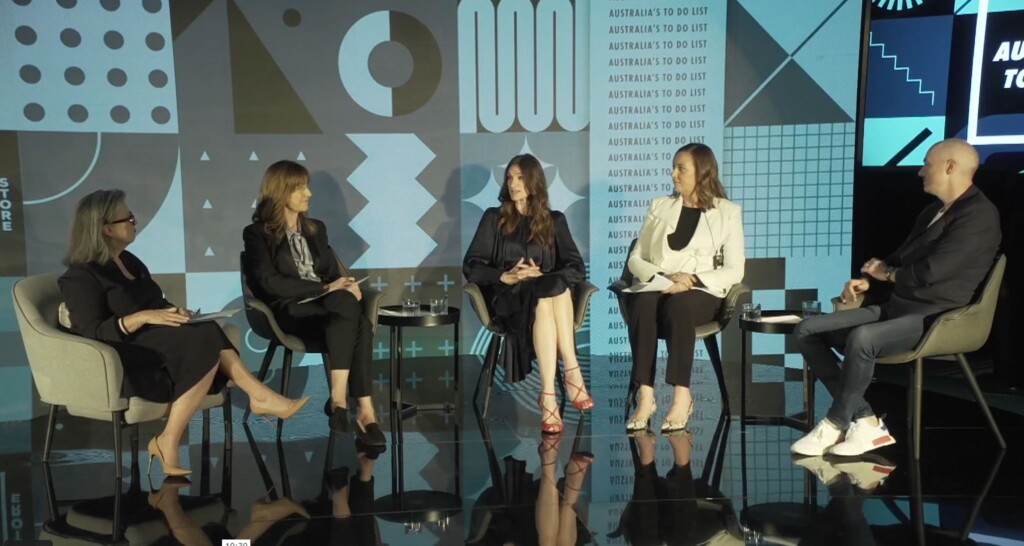Brands must be part of the solution not the problem when it comes to climate action

Brands must be part of the solution not the problem when it comes to climate action

It is easy to be overwhelmed by the challenges facing the world right now. Whether it’s tackling climate change, slavery, sustainable consumerism, gender equality or any of the other myriad of issues our society faces, the world’s ‘To Do List’ is getting dauntingly long.
But as the United Nations sets out 17 goals for Sustainable Developments, the time is ripe for brands to fill the void that governments are leaving, step up and engage, and be a part of the solution to make our world a better place.
In Nine’s recent State of the Nation Sustainability study, it was revealed tackling climate change was the top concern for most people surveyed, with an overwhelming amount of respondents expecting that brands take a position on the issue and use their power to help enact action.
In a Big Ideas Store panel discussion on ‘Australia’s To Do List’ featuring Michele O’Neill, Director of Powered Enterprise; Rose Herceg, President of WPP Australia and New Zealand; Louise Eyres, Chief Marketing Officer of Vanguard; Matt Jones co-founder of Four Pillars Gin and Joanne Gray, outgoing Managing Editor of The Australian Financial Review, the big topics of Environmental, Social and Governance (ESG), sustainability and climate change and the role brands play in this space were addressed.

The marketing and advertising industries are based on the mantra of consumption is growth, but in an era of companies pledging to be Net Zero, how do the worlds of advertising and marketing play its role in becoming part of the solution?
“It is counter intuitive to talk about an industry that was created to get people to consume more, but we are re-engineering to get people to consume even better or less,” reveals Rose Herceg. “A great example of this is IKEA, who will have a circular economy by 2030; they will physically not have anything they can’t reuse by 2030. There will be no waste. They are changing their business model from selling to renting for some things.”
“We’re not admonishing any clients because we’re all on this journey together. The CEO of Blackstone says it best: this journey will transform every single business as we get to Net Zero. Of the top 50 clients we have, 32 have a rock solid ESG plan by 2025 to be Net Zero.”
Herceg also highlighted CommBank, who are empowering customers to turn their homes ‘green’ to be eligible for a green interest rate discount on mortgages.
Outgoing Managing Editor of The Australian Financial Review Joanne Gray – who will soon be taking up a position at climate advisory and asset management firm Pollination – says the issue of ‘nature risk’ will start coming to the fore.
With the Financial Review recently launching a weekly energy decarbonisation newsletter profiling how the Australian economy is transitioning to net zero, businesses will soon start to become scrutinised for their affect on the environment. A section within the newsletter, Hot Air, examines the pledges and promises of business leaders, companies and politicians and points out the shortcomings, hyperbole, and sometimes the straight-out lies.
“Nature risk will soon come into the equation which will ensure businesses will be scrutinised what damage they are doing to the environment overall,” says Gray. “Because as we know, businesses haven’t had to factor in the costs that the environment provides to us for free, like clean water, clean air, clean air or rich soil. There will be a push for nature positive business, with the filter being ‘are you making the environment worse or better’.”
Gray added that with the government pledging Net Zero, this has “unleashed the forces”.
“The speed is picking up in terms of pressure from investors, financiers, customers and employees on businesses to do the right thing,” she says. But action speaks louder than words, and brands who fail to follow through on bold promises may encounter heartache.
“There will be greater media scrutiny and customer expectation around pledges from companies who say they’re going net zero,” says Gray. “I think there will be a lot of focus on who’s saying they’re doing it and who is actually doing it. And that will be the issue for businesses that are making pledges – there will be quite a few businesses who have said they’re going to go net zero carbon but sure how they will get there.”
Louise Eyres, Chief Marketing Officer of investment firm Vanguard, agrees with the sentiment that there is a shift afoot in investments too. The lean towards sustainable and ESG investment in Australia has grown three-fold between 2017-2021 with over $40 billion sitting in investment.
“This figure represents approximately 3.8% of all investments in Australia but when we talk of making the progress, getting the momentum and there is a really strong trajectory that Australians are making towards their sustainable choices,” says Eyres.
Such is the public’s interest in wanting to know a company’s ESG plan, or demanding that superannuation funds invest in renewables, The Sydney Morning Herald and The Age has released a new fortnightly column in Money called Clean Capital that explores all things ESG to help combat greenwashing in the mutli-trillion-dollar responsible investment world. The column allows for brands to join the sustainability conversation.






